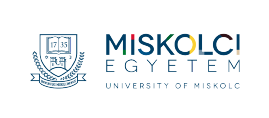The project implementation methodology involves a systematic approach aimed at
addressing the challenges posed by the diversity of ecosystems in the consortium
countries.
The methodology is structured around several key stages:
Research & Discover: Partners conduct research to gather the latest information on e-learning, green technologies, and quality assurance in training processes. This includes collecting data from scientific articles, databases, and technical standards. Best practices are exchanged through online conferences or workshops. Existing educational materials are adapted to fit into the e-learning system, with efforts to homogenize and update content for digital education.
Planning: Detailed planning is undertaken to map out the steps necessary for achieving project objectives. This includes developing implementation plans, dissemination strategies, and quality management plans. The implementation plan outlines project activities, deadlines, responsibilities, and participants, while the dissemination plan defines the strategy for disseminating results to target audiences. The quality management plan aims to ensure the quality of project activities and outputs through systematic assessment.
Develop Solutions & Innovate: Consortium partners demonstrate their skills and innovativeness to develop solutions, particularly in creating educational materials for e-learning and green technologies. Learning objectives are defined for each topic, and content is developed following a logical progression with elements to enhance learner engagement, such as graphics, videos, and interactive sessions. The focus is on creating innovative and engaging content that meets the needs of the target audience.
Approve & Implement: Developed materials are reviewed, tested, and approved before implementation. This involves ensuring alignment with European and international standards, addressing uncertainties, correcting errors, and processing feedback. Collaboration among project partners is essential during the implementation stage, with regular meetings and continuous monitoring of project progress. Interim financial and technical reports are prepared to assess project results against objectives.
Overall, the project implementation methodology emphasizes thorough research, careful planning, innovative solution development, rigorous testing and approval processes, and ongoing collaboration and monitoring to ensure the successful achievement of project objectives.









